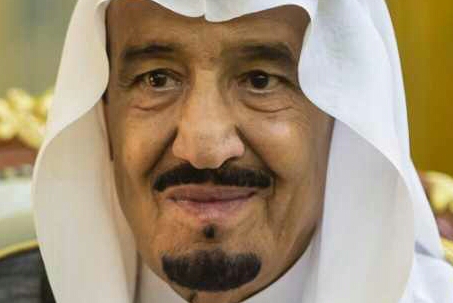New Saudi King Salman– is U.S protecting senior officials from accountability?
As President Obama prepares for a trip to Saudi Arabia later this month, a CBS 60 Minutes segment has rekindled calls to declassify the 28 pages omitted from the 2003 report about the 9/11 attacks.
The 28 pages are believed to expose a number of links between various officials in Saudi Arabia and the 9/11 hijackers — 15 of 19 of whom were Saudi citizens. A CIA watchdog report from last year says there is no evidence that the Saudi government “knowingly and willingly” supported al-Qaeda’s attack, but many congressmen believe the 28 pages could indicate heavy Saudi involvement in the 9/11 attacks.
“I think it is implausible to believe that 19 people, most of whom didn’t speak English, most of whom had never been in the United States before, many of whom didn’t have a high school education — could’ve carried out such a complicated task without some support from within the United States,” Sen. Bob Graham (D-FL) told 60 Minutes.
During the interview, 60 Minutes correspondent Steve Kroft asked Graham which of the Saudi government, charities, and wealthy benefactors were involved in aiding the hijackers.
“All of the above,” Graham replied.
The papers are accessible to members of Congress, so long as they are unaccompanied and do not take notes. A bipartisan effort led by Rep. Walter Jones (R-NC) and Rep. Stephen Lynch (D-MA) is attempting to get the documents read and declassified.
Obama has promised the families of victims on two separate occasions that he would declassify the 28 pages, which have been classified for 13 years, but he may be reluctant to strain already fragile ties between the United States and Saudi Arabia.
Obama’s visit to the Gulf Kingdom on April 21 will be in an attempt to strengthen ties between the United States and Saudi Arabia. Obama has been critical in the past and questioned the U.S.-Saudi relationship, in light of Saudi’s exportation of a strict doctrinal Wahhabi version of Islam.
Saudi Arabia, meanwhile, has criticized Obama’s attempts to reconcile with Iran, considering the competition between the Saudi and Iranian governments for regional influence. Should Obama declassify the 28 pages, relations between the United States and Saudi Arabia could further unravel, though some former congressmen believe that is a small price to pay if, as is alleged, high-ranking figures in Saudi Arabia played a role in supporting the 9/11 attackers.
Porter Goss, a former Republican congressman from Florida, said the FBI refused to declassify the 28 pages. The Bush administration initially cut them in the name of national security, though critics say it was to protect the Bush family’s relationship with Saudi Arabia.
“It’s about the Bush Administration and its relationship with the Saudis,” Jones, the Republican Congressman from North Carolina, told the New Yorker.
In addition to revealing the connection between Saudi Arabia and the hijackers, the 28 pages allegedly also spell out links between the hijackers and people like Anwar al-Awlaki, a U.S. citizen who later joined Al-Qaeda in Yemen and was killed by a drone strike, and Omar al-Bayoumi, a Saudi who aided the hijackers with finances as well as in finding homes. Some people believe Bayoumi may have been a Saudi agent tasked with helping the hijackers execute the attack.
“Those are a lot of coincidences, and that’s a lot of smoke. Is that enough to make you squirm and uncomfortable, and dig harder—and declassify these 28 pages? Absolutely,” former Congressman Tim Roemer (D-IN) told 60 Minutes.
Please see NationofChange
http://www.nationofchange.org/news/2016/04/11/28-pages-implicate-saudi-arabia-911/







